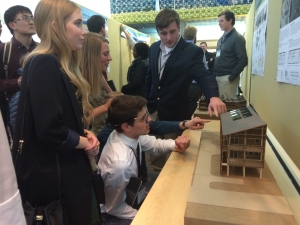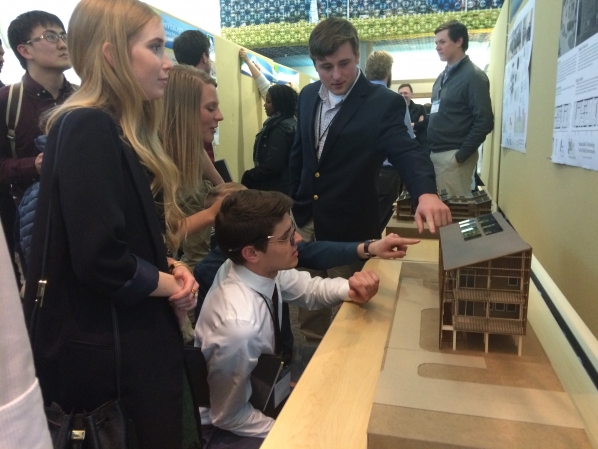Two student teams from Appalachian State participated in the 2016 Race to Zero Competition, sponsored by the U.S. Department of Energy (DOE). After months of designing, evaluating, computer modeling, writing comprehensive reports and preparing presentations, the teams traveled to the headquarters of the National Renewable Energy Lab (NREL) for the competition, held in Denver April 16-17. The teams competed in two design contests, and the group who designed the “suburban single family detached house” was selected as one of four grand finalists from 31 other university teams. Winning designs were evaluated in 10 different categories, including architectural design, interior design, energy analysis and innovation.
This is the second year an Appalachian State University team has taken home a grand finalist award, and it is huge honor for the Department of Sustainable Technology and the Built Environment, the College of Fine and Applied Arts and the university. The teams were comprised 20 students in a variety of majors, including undergraduate and graduate students in Building Science and Sustainable Technology.
“Both teams received compliments on architectural and engineering design quality, energy and moisture analysis, construction details and estimates, and graphics and model building from NREL and Department of Energy staff,” said Jeff Tiller, professor in the Department of Sustainable Technology and the Built Environment and faculty advisor (along with Department Chair Chad Everhart) for the teams. “The competition jurors and students from other participating teams were similarly impressed with our work. Many of the folks at NREL and DOE acknowledged Appalachian State’s national prominence in the field of sustainable building design and renewable energy.”
The Race to Zero competition is designed to challenge students to think creatively and propose new solutions to real-world problems. Students are encouraged to become leaders in the sustainable housing movement, with the ultimate goal of designing truly energy-efficient homes where renewable power can offset all (or most) of the annual energy consumption.
Competing teams included Georgia Tech, Virginia Tech, Carnegie Mellon, University of Tennessee, University of Wisconsin, Pennsylvania State University, University of Missouri, University of Miami and the University of Southern California, among others.

